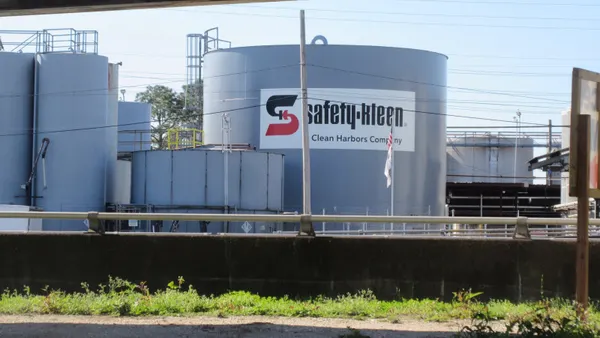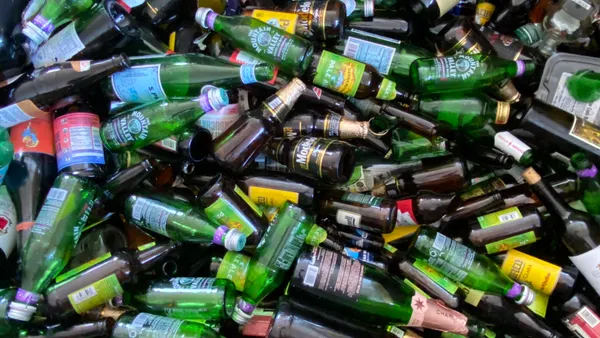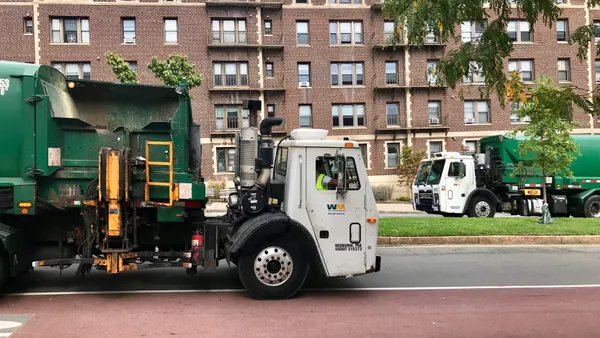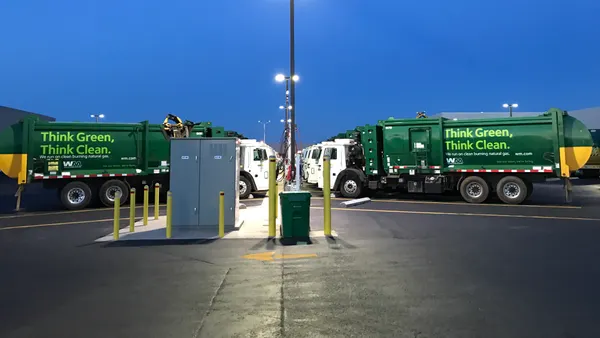Dive Brief:
- The California State Association of Counties (CSAC) recently sent a letter to Gov. Gavin Newsom calling for the establishment of a statewide commission on recycling market development and is asking all counties to follow suit.
- "Significant market disruptions for recyclable materials have a direct impact on California’s local governments and our ability to meet state-mandated recycling goals," CSAC wrote. "Since China’s change in policy, materials are piling up in local waste facilities across state with no place to go. This has caused slowdowns in waste processing of other materials, significant public health risks, and the increased potential for fines and penalties."
- Alameda County's Board of Supervisors joined the move with its own Feb. 5 letter. "Local recycling programs rely on foreign countries’ willingness to import recyclable materials," they noted, adding "Such a commission, especially with state leadership, could identify solutions involving political and economic levers that are not available to local government."
Dive Insight:
China's National Sword trade import policies, along with subsequent moves by other Southeast Asian countries, have already had a notable effect on California's local governments. Assuming China follows through on plans to end all scrap imports next year, markets could tighten further and more municipalities could find themselves scrambling for alternatives in order to remain compliant with state mandates.
California requires local governments to divert most of their recyclable waste, and much of it has been getting exported overseas. The Integrated Waste Management Act of 1989 mandated that cities and counties divert 50% of all solid waste effective 2000, while State Assembly Bill 341 — passed and signed by Newsom’s predecessor in 2011 — established a statewide goal that at least 75% of solid waste generated be reduced, recycled, or composted by next year.
In addition, State Senate Bill 1383, which was passed in 2016, established targets of a 50% reduction of organic waste disposal by next year and a 75% reduction by 2025. All of these targets — along with the rising cost to recycle in many parts of the state — have proven financially challenging.
State agency CalRecycle, which first engaged publicly on this the topic in Jan. 2018 with guidance around material stockpiling, has since hosted multiple market workshops and provided grant funding to specific projects. CalRecycle declined to comment on this specific proposal from CSAC.
Other state agencies have considered taking more direct steps to expand market development in the wake of commodity disruptions. Most recently, Washington's Department of Ecology backed new legislation to create a market incubator that could do similar work with existing entities in Pennsylvania and Colorado.
CSAC has support on this matter from the California Resource Recovery Association (CRRA), which recommends that its members endorse the state commission on recycling. CRRA has suggested that the commission address such topics as developing more end markets in California and financing tools to build infrastructure needed to meet state goals for reuse, recycling, composting and anaerobic digestion facilities.












